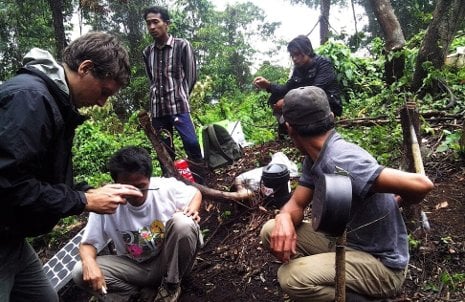The School of Forest Resources and Environmental Science has honored four SFRES alumni. Francisca (Panchita) Paulete ’06 and Aaron M. Everett ’01 were named 2013 Outstanding Young Alumni. David Myrold ’77 received the School’s 2013 Outstanding Alumnus Award, and Jacob Hayrynen ’81 was inducted into the SFRES Honor Academy.
Paulete is a graduate of the Peace Corps Master’s International program at Michigan Tech. She served as a Peace Corps volunteer in Gambia, West Africa, from 2003 to 2005. She now is district planning and environmental coordinator for the Eugene District of the Bureau of Land Management in Oregon.
Read more about the alumni awards in Tech Today.
